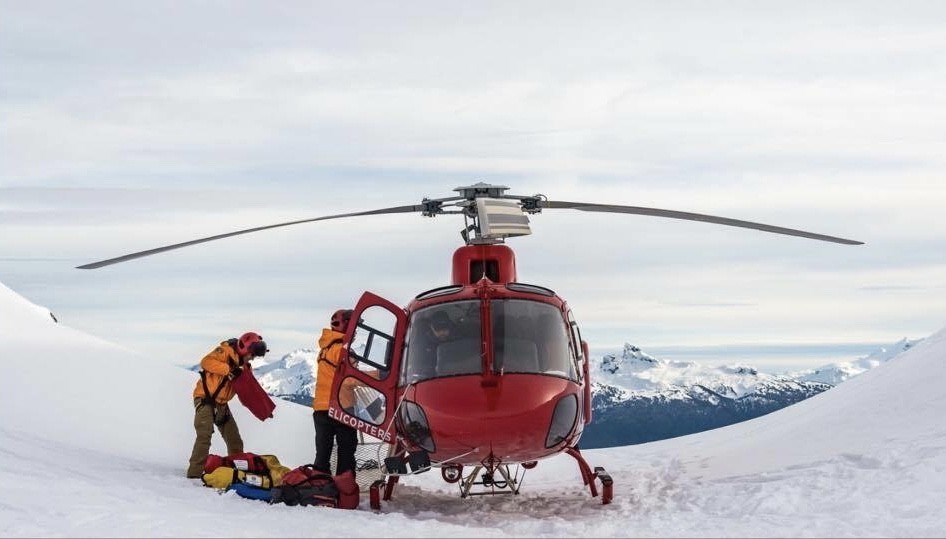As more locals and visitors are drawn to the allures of the Sea to Sky backcountry, Whistler Search and Rescue’s (Whistler SAR) call volume jumped yet again last year.
Between March 1, 2021 to March 1, 2022, the volunteer search-and-rescue organization received more than 110 requests for assistance, according to its annual manager’s report, compared to 92 during the same period the year prior. Of those, 83 were issued a task number and required mobilization, compared to 76 in 2020-21. That represents an eight-per-cent year-over-year jump in calls requiring a search crew’s response.
Four of those calls, however, were resolved by an enhanced Whistler SAR program promoting self-rescue, when appropriate, rather than a sending in a SAR team. The programming offers search subjects instructions on how to download GPS apps to assist in route-finding, as well as basic medical coaching to help subjects manage symptoms of fatigue, muscle strain, dehydration and nausea. Most importantly, the program offers simple, systematic assurance and comfort to subjects as they overcome challenges and make their way to safety.
“In keeping with the trend over the past number of years, the 2021/22 WSAR response statistics are once again higher than the previous year in terms of overall activity,” the report read. “Generally speaking, the distribution of call volume over the months was somewhat more consistent than recent years. The notable exception being September which appears to be an outlier.”
September was the busiest month of the reporting period for Whistler SAR volunteers, with 14 responses, followed by February (13) and July (10). Crews had a well-deserved break in October when no responses were required.
Powder Mountain was the most-visited location by Whistler SAR crews (16 calls), followed by the backside of Whistler Mountain (8). Hiking (19) and climbing (19) tied for the most callouts by activity in 2020-21, followed by ski mountaineering (11) and snowmobiling (10).
Mountain bike incidents decreased again this year, necessitating only three callouts in 2021. That’s slightly down from four in 2020, but significantly lower than the nine incidents recorded in 2019. Despite the dip in volume, “Mountain bike incidents … continue to produce major trauma,” the report noted.
Mostly, the 34 summer calls included treatment for minor injuries such as small bone fractures, allergic reactions and fatigue.
In total, Whistler SAR helped 129 individuals over the 12 months. Of those, 46 per cent were male and 32 per cent were female, compared to 58 per cent and 24 per cent, respectively, in 2020-21.
“The trend of gender equalization in outdoor recreation mishaps seems to be continuing,” the report explained, adding that the “[s]ame seems to hold with the overall age of all subjects. Subject age class is much more evenly distributed.”
During the most recent reporting period, around half of search subjects were in their twenties: 11 were aged 21 to 25; while 20 were between the ages of 26 and 30 and 14 were aged between 31 and 40.
With pandemic-induced travel restrictions in place for much of the year, tourists represented just 27 of the 129 subjects (based off anecdotal evidence). Of those, 12 were American, seven were Japanese, two were British and two were from South Korea.
Local area residents accounted for 17 callouts, while 38 individuals came from other regions of B.C. The remaining 51 subjects were Canadian, with addresses in another province.
The 83 tasks took an approximate combined 3,645 hours of volunteer effort.
Of those tasks, 53 were deemed medical rescues; 17 were search missions and 13 were evacuations. Whistler SAR attended to two fatal incidents over the reporting period, both of which were mutual aid responses with Squamish SAR and Pemberton SAR. In a positive trend, that’s lower than the four avalanche deaths recorded in the Sea to Sky backcountry the year prior.
Though Whistler SAR saw its task number rise last year, provincial SAR teams appear to be seeing an overall levelling out after reaching record-setting levels in the first year of the COVID-19 pandemic.
According to B.C.’s public safety ministry, ground search-and-rescue (GSAR) groups were deployed 1,959 times between April 2020 and April 2021, an increase of nearly 25 per cent, making it the busiest year in B.C. SAR history. But according to A BC Search and Rescue Association release issued last month, B.C. search-and-rescue volunteers responded to 1,900 tasks in 2021.
Also of note in 2021, Whistler SAR held its first membership drive since 2014. Between the departure of two longstanding members and a rise in calls during the pandemic, it was time, president Brad Sills told Pique last year.
“We operate a pretty small crew at 31. Most of the teams in the Lower Mainland are closer to 50 or 60, so there’s a little bit of burnout going on.”
-With files from Brandon Barrett




